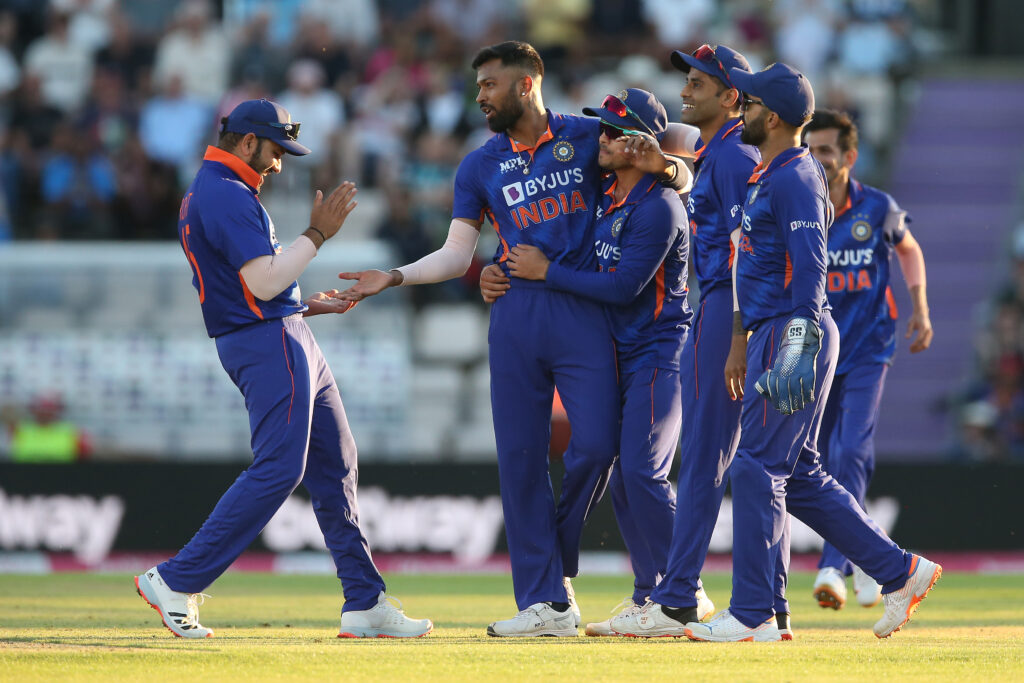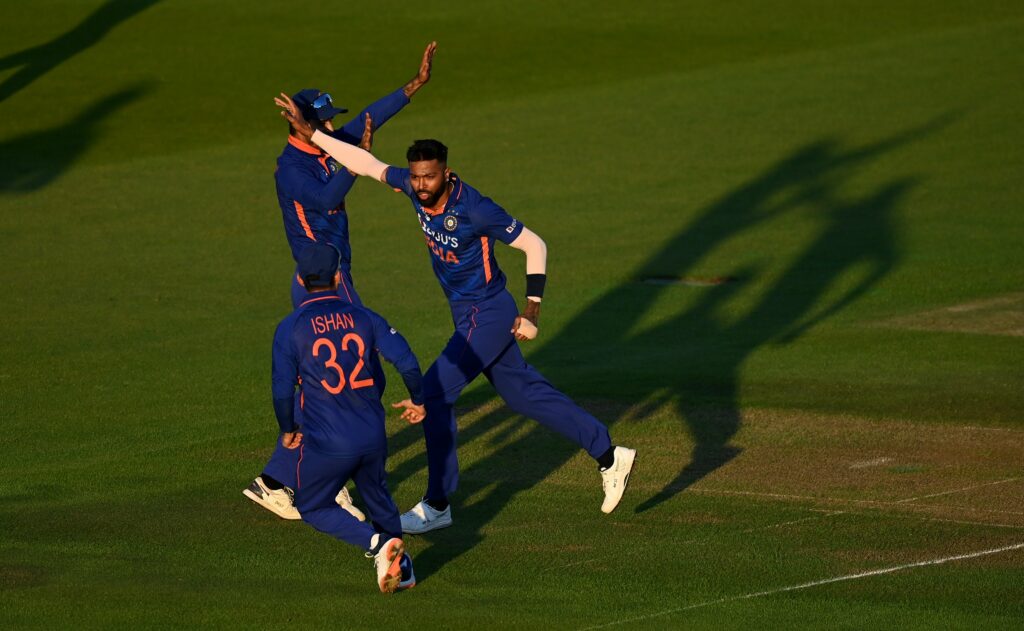On a flat surface, playing a batting-heavy side, England were expected to give an understrength India team a hard time in the first T20I of the three-match series. However, the visitors turned the tables on them and came out triumphant by a huge margin of 50 runs in Southampton on July 7.
The hosts were pulverised by a fantastic batting performance from the Indians, which the tourists backed with one of their better bowling displays in recent times. India made a gigantic 198/8 and went on to dismiss England for just 148, making it one of their biggest wins in T20I history.

It was the kind of victory the Indian set-up needed after a gut-wrenching loss in the Edgbaston Test only a few days before. And the beginning of the mood change was led by their batting unit, which began a touch shaky, losing openers Rohit Sharma (24) and Ishan Kishan (8) early into the piece.
But a counterattacking stand between Deepak Hooda (33) and Suryakumar Yadav (39) not only took the game back to the opposition but kept India in line for a sizable score to put the pressure on England’s lengthy batting unit.
Backing the Hooda-Yadav stand in earnest was India’s premier allrounder Hardik Pandya, who smashed the England attack towards a brilliant half-century (51 off 33 balls). Pandya hit 6 fours and one maximum along the way and allowed India to post a score near the 200-mark.

To help Pandya, lower-order men Axar Patel (17) and Dinesh Karthik (11) played small but critical cameos that further took the game past England.
Missing key bowlers in Mark Wood and Jofra Archer, England needed bowling heroes to emerge. That didn’t happen on the day. But they could feel quietly pleased about the afternoon experienced seamer Chris Jordan had. When the rest of the English attack was taken for plenty, the 33-year-old ended with figures of 2/23 off his 4 overs.
That was also perhaps the only real positive from the game for the hosts, who then endured one of their weakest outings with bat in hand. Losing wickets at regular intervals, with the asking rate climbing up and Indian bowlers mounting their troubles, England could never enter the contest.
It started with another influential opening burst from Indian spearhead Bhuvneshwar Kumar (1/10), who got rid of Jos Buttler without him adding a run to the score. It was a blow that England never really recovered from. The hosts also lost Jason Roy (4), Liam Livingstone (0) very early into their innings.

It meant excess pressure on Dawid Malan (21), Harry Brook (28) and Moeen Ali (36) to kick on and make substantial scores. Something they failed to do in this match, leaving England in a hole the hosts could never overcome. In the end, Jordan tried to a few lusty blows through his 17-ball 26 not out. But by then, the fortunes for the game were more or less sealed.
Pandya had a fruitful outing with the ball, too, adding a four-wicket burst to his display on the night. The Indian allrounder backed his affluent half-century with eye-catching figures of 4 for 33. His task of getting inroads into the English batting unit was made easier by Bhuvneshwar and also the pairing of Harshal Patel and Yuzvendra Chahal as well as debutant Arshdeep Singh.
Singh impressed one and all with his spell of 2/18, with his left-arm swing bowling and control troubling the English batters. Patel chipped in with a spell of 1/24, as did Chahal, who took 2 wickets for 33.
Brief scores
India 198/8 in 20 overs (Pandya 51, Yadav 39; Jordan 2/26) beat England 148/10 in 19.3 overs (Ali 36; Pandya 4/33, Singh 2/18) by 50 runs


